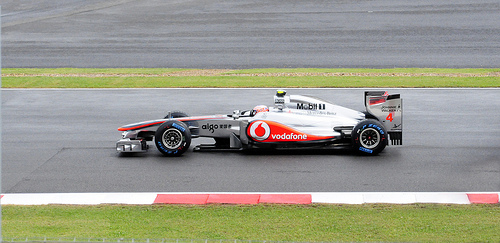Moss is wrong: female drivers will soon be thriving in Formula 1
Amazingly it is 2013, the twenty-first century. I say “amazingly”, because if you have read Stirling Moss’ recent comments on women racing drivers, you may be thinking we’re stuck in 1953.
The legendary F1 driver said “I think they have the strength, but I don’t know if they’ve got the mental aptitude to race hard, wheel-to-wheel.” An ignorant and sexist remark if ever there was one.
But the topic of women drivers in motor racing is an intriguing one. Motorsport is one of the few sports where men and women compete against each other on an even footing, and that should be celebrated.
But even then, it is still considered to be a masculine sport. Visit any circuit on race day and this is soon apparent, with attractive young women primarily used as eye candy by sponsors or as grid girls, while the men do the job of racing.
However, despite being few and far between, there are plenty examples of female drivers challenging that stereotype: five women have participated in an F1 race weekend.
The first was Maria Teresa de Filippis, who started three races in 1958. She was followed in 1974 by Lella Lombardi, the only woman to score an F1 point, when she picked up half a point from finishing sixth in the shortened 1975 Spanish Grand Prix.
Unfortunately, the other three women – Divina Galica, Desire Wilson and Giovanna Amati – failed to qualify for the races they entered.
It is now 21 years since Amati was dropped by the Brabham team and replaced by future world champion Damon Hill, meaning the vast majority of undergraduates here at Warwick have no recollection of a full-time female F1 driver.
The most famous female racing driver in the world at the moment is American star Danica Patrick.
She burst onto the scene in 2005 with some impressive performances in the IndyCar Series, and in 2008 she became the first female driver to win a race in the championship.
But even she, like other female racing drivers before her, is struggling to overcome an issue – her success always has the qualifier “pretty good…for a woman”.
Where Lewis Hamilton was successful enough in F1 to make everyone forget that he was the first black F1 race winner, no female racing driver of recent years has been successful enough to make everyone forget that they are female.
Danica is by no means outstanding. But by being a woman, she receives the level of media coverage in the US that would normally be received by a virtuoso.
This is a problematic paradox – on the one hand, it is raising awareness of the possibility that female drivers can be good too, but on the other, she is still primarily seen as a woman, rather than as a driver on equal terms with the other competitors.
The same can be seen elsewhere. Any female racing driver making progress through the ranks is guaranteed column inches on account of being female, regardless of how good they are at the driving bit.
This in turn frustrates purist racing fans and people within the sport who feel that they are being unjustly rewarded for being female, in favour of more talented male drivers struggling to find the necessary funding to progress – essentially frustration at positive discrimination.
Such a situation is only going to sustain the negative stereotypes about female racing drivers. Attitudes such as that of Moss might seem antiquated but they are actually not uncommon within motorsport.
So what’s the solution? It’s a very delicate situation which needs careful managing.
We need prominent female drivers competing respectably and speaking regularly in the media – Susie Wolff, the Williams test driver, has been a great spokeswoman and role model in recent months and will soon have further tests at the wheel of the car.
That way, hopefully more young girls can be inspired to take up the sport and challenge the stereotypes and the beliefs of those in the sport.
I have no doubt that Stirling Moss is completely wrong, and that somewhere out there are girls who are talented enough to win the Formula One World Championship.
The glass ceiling will be broken. There will be more female drivers, and eventually we will have a female F1 race winner, and maybe even a female world champion.

Comments